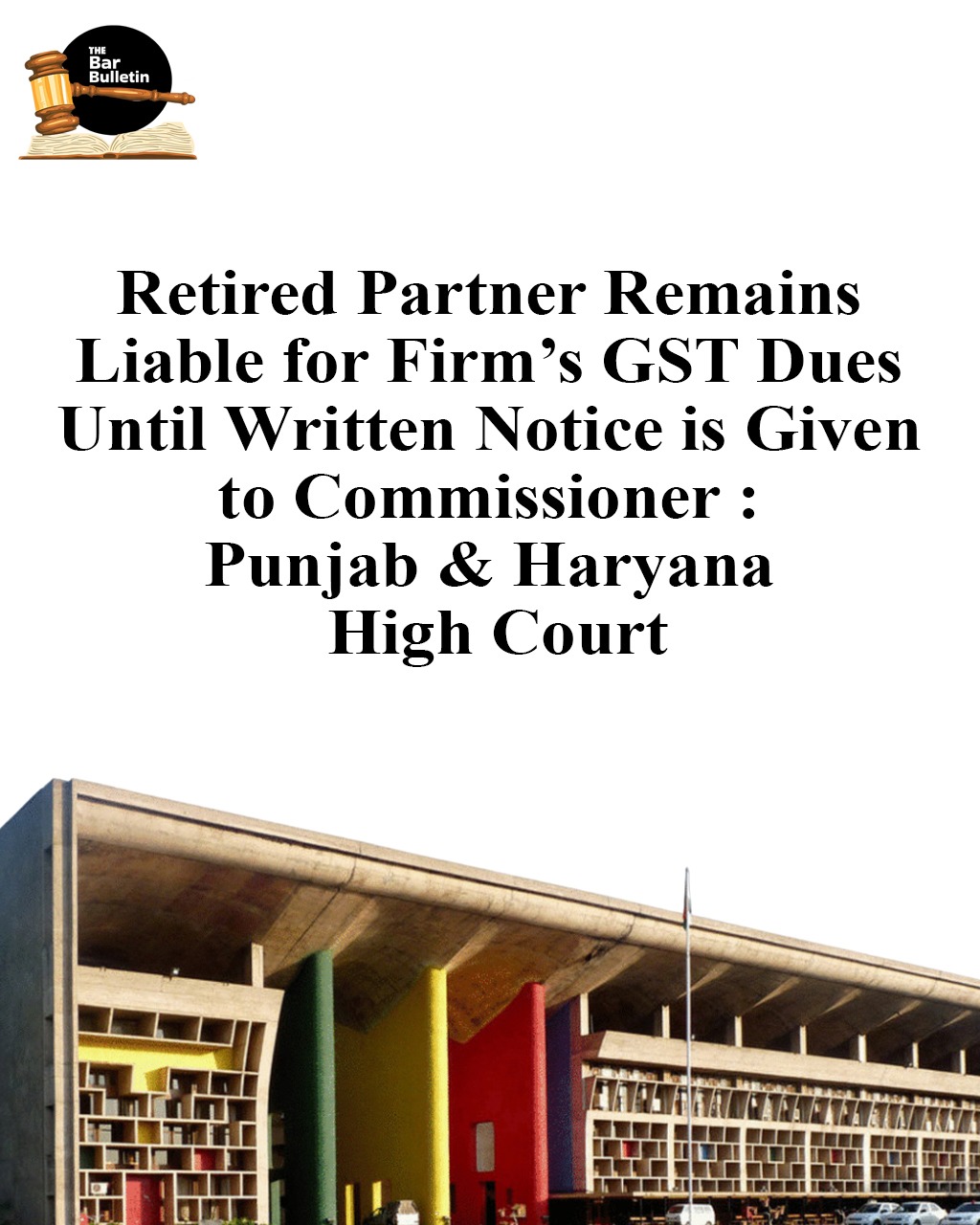Emphasizing the principle of joint & several liability for partners of a firm, to state that a partner, even after his retirement, can be held liable for the firm’s dues if he fails to provide the required notice to the Department concerned, the Punjab and Haryana High Court rejected the contention of the petitioner (retired partner) that he cannot be fastened with the liability of Rs. 37.84 lacs under Section 73 of Punjab GST Act and Central GST Act, 2017 read with Section 20 of the Integrated GGST Act, 2017 on account of discrepancy in payment of GST, simply because he was retired from the firm 4 years prior to issuance of demand notice.
At the same time, the Division Bench comprising Justice Lisa Gill and Justice Sudeepti Sharma clarified that “intimation of retirement of partner has to be given to the Commissioner by notice in writing, and that in case, no such intimation is given within one month from the date of retirement, liability of such partner under first proviso shall continue until the date on which such intimation is received by the Commissioner”. (Para 11)
Speaking for the Bench, Justice Gill referred to the provision of Section 90 of the CGST Act which talked about the joint and several liability of each of the partners of a firm for all such payment, in case they have not intimated the date of their retirement from the firm to the Commissioner by a notice in that behalf in writing within a month, and failure to do so shall render them liable to pay tax, interest or penalty due up to the date of their retirement whether determined or not, on that date. The Bench, therefore, refused to entertain the argument of the petitioner that he was unable to intimate the competent authority on his own, and it was only for the Firm to have taken necessary steps.
Briefly, the petitioner, a partner in the firm M/s Foreigners Auto Zone, claimed to have retired from the partnership on April 20, 2021, pursuant to the initiation of proceedings by the State Tax Officer against the firm for an outstanding GST liability of Rs. 37.84 lacs. When recovery actions were initiated, which included the attachment of the petitioner’s share in a piece of land, the petitioner challenged these actions, arguing that he had retired from the firm before the default occurred and therefore could not be held responsible.
When the matter reached the High Court, it was noted that the counsel for the petitioner was unable to point out why the intimation of his retirement from the partnership firm was not adopted earlier in April 2021 or within the month thereof when he allegedly retired from the Firm. Noting this discrepancy and referring to the mandate of Section 90 of the CGST Act, the High Court dismissed the petition and maintained the liability of the petitioner for the Firm’s pending GST dues.
Appearances:
Advocate Amit Gupta, for the Petitioner
Advocate Saurabh Kapoor, for the Respondent

